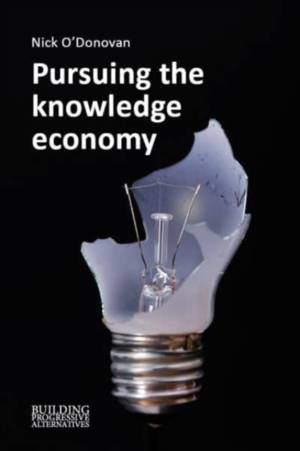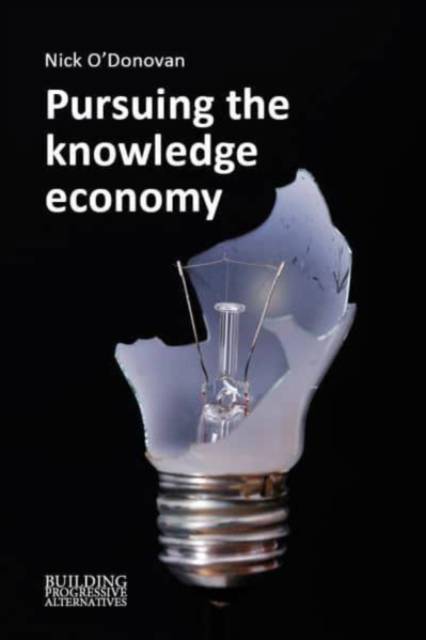
En raison d'une grêve chez bpost, votre commande pourrait être retardée. Vous avez besoin d’un livre rapidement ? Nos magasins vous accueillent à bras ouverts !
- Retrait gratuit dans votre magasin Club
- 7.000.000 titres dans notre catalogue
- Payer en toute sécurité
- Toujours un magasin près de chez vous
En raison de la grêve chez bpost, votre commande pourrait être retardée. Vous avez besoin d’un livre rapidement ? Nos magasins vous accueillent à bras ouverts !
- Retrait gratuit dans votre magasin Club
- 7.000.0000 titres dans notre catalogue
- Payer en toute sécurité
- Toujours un magasin près de chez vous
31,45 €
+ 62 points
Description
In the 1990s, the "knowledge economy" was hailed by policy-makers in developed democracies as an antidote to the anxieties arising from the era of market liberalization - an era characterized by the decline of skilled blue-collar work, increasing levels of social exclusion and widening regional inequality. The shift to knowledge-driven growth appeared to offer policymakers a way of harnessing technological progress and global economic integration for progressive purposes, and justifying progressive policies in terms of the economic benefits that they would produce.
Nick O'Donovan tells the story of how the techno-optimism once associated with the rise of the knowledge economy came to be supplanted by widespread anxiety about technological progress, and how the political consensus that formed around a knowledge-driven growth agenda has unravelled, paving the way for the electoral upheavals experienced by many developed democracies in recent years. By examining the rhetoric and reality of knowledge-driven growth over the last three decades, the book highlights the flawed assumptions underpinning this policy agenda, showing how its economic shortcomings map on to patterns of political discontent evident today. It assesses whether there is scope for rebooting this policy agenda in the wake of the Covid-19 pandemic, or whether politicians will need to reach beyond it if they are to deliver inclusive prosperity and equitable growth in the future.Spécifications
Parties prenantes
- Auteur(s) :
- Editeur:
Contenu
- Nombre de pages :
- 232
- Langue:
- Anglais
- Collection :
Caractéristiques
- EAN:
- 9781788215152
- Date de parution :
- 26-05-22
- Format:
- Livre broché
- Format numérique:
- Trade paperback (VS)
- Dimensions :
- 155 mm x 231 mm
- Poids :
- 362 g

Les avis
Nous publions uniquement les avis qui respectent les conditions requises. Consultez nos conditions pour les avis.






